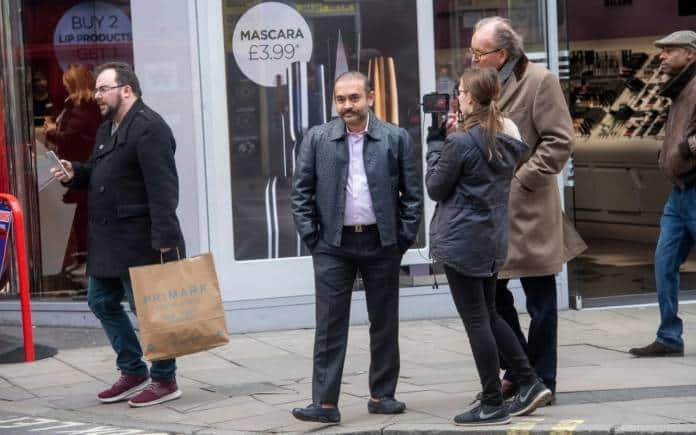



Britain’s popular Tier 1 investor visa, unofficially known as the golden visa, has become the latest casualty of the Russia-Ukraine tension. On February 17, 2022, home secretary Priti Patel announced the closure of the Tier 1 investor visa with immediate effect. For several years, activists and politicians have criticised its lax regime that enabled dodgy millionaires, especially Russians and Chinese, to buy their way into getting a UK citizenship.
The scheme was introduced in 2008, in the wake of the global financial crisis, and since then over 13,000 Tier 1 investor visas have been issued. A minimum investment of £2 million was required to make the application, which after five years could lead to permanent residency – or three years if the investment was increased to £5 million or two years if it went up to £10 million. It was always a game of money.
There was, of course, nothing unusual about the scheme as several countries in Europe have their own version of golden visas dangling the attendant limbs of their mature democracies – judiciary, health services, education – for money from those hailing from repressive regimes or countries which do not do justice to their ambitions and aspirations.
In the case of the UK, right from the introduction of the scheme, it seemed Russian and Chinese nationals were far more disproportionately interested than other nationals in sinking their millions in order to establish homes in townhouses and mansions in London. Nationals of Hong Kong, India, Kazakhstan, Pakistan, Turkey, and Saudi Arabia have also applied in large numbers for the Tier 1 investor visas. This list includes diamond merchant Nirav Modi who secured an investor visa in 2015 and who faces an extradition case - a suspected fraudster making the most of the British judiciary’s insistence on upholding human rights.
 Nirav Modi secured a UK Tier 1 investor visa in 2015. He was spotted in London in March 2019 by 'The Telegraph' reporters.
Nirav Modi secured a UK Tier 1 investor visa in 2015. He was spotted in London in March 2019 by 'The Telegraph' reporters.
But over the years, reports of increasing Russian and Chinese influence over Westminster pointed out the pitfalls of the golden visa. Russian oligarchs were accused of corrupting the British elites, and several of them donated lavishly to the Conservative party.
Journalist Catherine Belton’s marvellously detailed ‘Putin’s People’ notes: “The city (London) had grown used to the flood of Russian cash. Property prices had surged as first tycoons and then Russian officials had bought up high-end mansions in Knightsbridge, Kensington and Belgravia. A string of Russian share offerings, led by the state’s Rosneft, Sberbank and VTB, had helped pay the rents and wages for the offices of London’s well-heeled PR and legal firms. Lords and former politicians were paid lavish salaries to serve on Russian companies’ boards, although they were granted little oversight of corporate conduct.”
In January 2022, House of Commons Speaker Sir Lindsay Hoyle circulated MI5’s letter to MPs alerting them about Christine Lee, who provided legal advice to the Chinese embassy in Britain. MI5’s assessment was that she had “facilitated financial donations to serving and aspiring parliamentarians on behalf of foreign nationals based in Hong Kong and China.” Labour MP Barry Gardiner had received more than £600,000 from Lee and had also employed her son in his parliamentary office.
It is thus no surprise that the use of the British golden visa by the Russians and the Chinese had come under increased focus. In 2015, Sir David Metcalf, the chairman of the government’s migration advisory committee, described the UK’s golden visa as not fit for purpose. He turned the tables by characterising the golden visas as British taxpayers financing the stay of wealthy foreigners in the UK, which was usually deployed for refugees and asylum seekers coming to the UK. His reasoning was that several golden visa applicants were parking £2 million in gilts, collecting the interest earned on them, and once they received the citizenship, they could withdraw the money.
In 2018, the poisoning of former Russian agent Sergei Skripal in Salisbury brought Russia-UK relations to their lowest ebb. The episode also forced a relook at the golden visa. In 2019, the UK home office did not renew the visa of Roman Abramovich, the owner of Chelsea football club. Reinforcing the aura of laxity in the scrutiny of golden visa applications, the home office admitted that it was conducting a review of all such visas issued between June 2008 and April 2015. That meant that over 6,000 visas were up for a thorough examination as they were not processed with the required level of diligence.
Also read: When the UK Home Office revokes visas to curb corruption
A report of that examination is still due, but from April 2019, golden visa applicants had to show that they had the qualifying £2 million for at least two years, increasing it from the earlier requirement of 90 days. Investment in gilts was taken off the approved list in a bid to force the deployment of capital in a more productive and vigorous way.
All along, the home office’s stance was that they were constantly working to prevent any abuse of the golden visa route. Thus there was always an implicit acceptance of unwanted elements having used the scheme. The continued failure to publish the report about the visas issued between 2008 and 2015 now referred to as the “blind faith period”, coupled with increased hostility between Russia and the Western world, culminated in the complete halt of the Tier 1 investor visa.
In December 2018, Sajid Javid, the then home secretary had announced the suspension of the golden visa, but he was forced to do a U-turn faced with threats of cases by immigration lawyers and disagreement within the government. But now Priti Patel has unequivocally stated that golden visas had failed to deliver for the UK people and gives opportunity for corrupt elites to access the UK.
 (Image via Twitter.com/PritiPatel)
(Image via Twitter.com/PritiPatel)
But considering the popularity of the scheme, and the inevitability of having some version of the golden visa, it is very likely that it will reappear, but in a different form. It has already been linked to the innovator visa and the home office has made it clear that: “Settlement will now be conditional on applicants executing an investment strategy that can show genuine job creation and other tangible economic impacts, passively holding UK investments will no longer be enough to obtain settlement.”
With such forceful articulation of what the government wants, there is no scope that the decision to scrap the golden visa will be challenged in courts. But what it means is that for many high net worth wannabe applicants, including several from India, it has to be a wait-and-watch strategy, at least for the time being.
Discover the latest Business News, Sensex, and Nifty updates. Obtain Personal Finance insights, tax queries, and expert opinions on Moneycontrol or download the Moneycontrol App to stay updated!
Find the best of Al News in one place, specially curated for you every weekend.
Stay on top of the latest tech trends and biggest startup news.